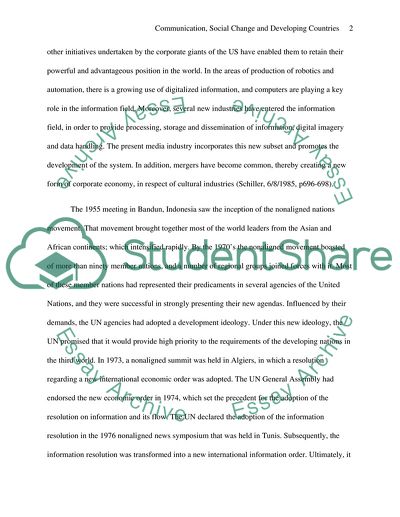Cite this document
(“Communication and social change in developing countries Essay”, n.d.)
Communication and social change in developing countries Essay. Retrieved from https://studentshare.org/miscellaneous/1547144-communication-and-social-change-in-developing-countries
Communication and social change in developing countries Essay. Retrieved from https://studentshare.org/miscellaneous/1547144-communication-and-social-change-in-developing-countries
(Communication and Social Change in Developing Countries Essay)
Communication and Social Change in Developing Countries Essay. https://studentshare.org/miscellaneous/1547144-communication-and-social-change-in-developing-countries.
Communication and Social Change in Developing Countries Essay. https://studentshare.org/miscellaneous/1547144-communication-and-social-change-in-developing-countries.
“Communication and Social Change in Developing Countries Essay”, n.d. https://studentshare.org/miscellaneous/1547144-communication-and-social-change-in-developing-countries.


